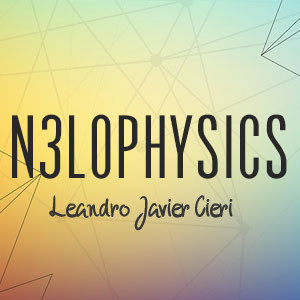
N3LOPHYSICS
The Large Hadron Collider (LHC) at CERN will be reaching for many observables an impressive accuracy in the next few years, and therefore, it will be possible to study Physics at very high precision and at an energy scale never reached so far. Theory must be in time for this appointment, producing equally accurate instruments to interpret new data and to distinguish between the Standard Model (SM) and New Physics (NP), and among different models of NP. In this framework, Quantum Chromo Dynamics (QCD) perturbative corrections play a crucial role. Next-to-next-to-leading order QCD theoretical predictions (the standard of theoretical precision) for the observables measured at the LHC are quite accurate, but in many cases they are not sufficient to match the accuracy that will be reached at the experimental level. This scenario motivates a new theoretical effort to go beyond NNLO in order to include the next perturbative order: the next-to-next-to-next-to-leading order (N3LO). This is exactly the aim of this project: to produce great advances in precision physics calculations, carrying out a complete N3LO analysis for relevant processes in QCD. In order to accomplish the precedent tasks, the applicant proposes in first place, the fully N3LO universal extension of the qT-subtraction method, computing the last two missing third-order qT-subtraction ingredients. Secondly, the applicant proposes to apply the N3LO qT-subtraction method to Higgs and Drell-Yan production, implementing such third-order corrections in new Monte Carlo codes for reliable phenomenological studies. The goals of the project are: 1) to set up the state of the art for the SM predictions as reference for phenomenological analysis of New Physics; 2) to find new techniques and new strategies which use multi-loop calculations in the small-qT limit; 3) to establish the basis for the New Standard of Precision Physics at the LHC: the N3LO.

Cieri Leandro Javier – INFN FIRENZE
Dr. Leandro Cieri (PhD in Physics 2012) is a researcher at INFN Firenze Unit. He is an expert on LHC phenomenology, in particular on QCD calculations at the highest perturbative accuracy. His theoretical tools constitutes the state of the art in perturbative calculations, many of them being used as reference tools by the LHC collaborations. He is editor/reviewer for diverse refereed journals. His PhD Thesis was awarded with the Giambiagi prize, “for notable contributions that allowed to calculate cross sections of various processes relevant for the discovery of the Higgs boson at the LHC”. He was research associate at “La Sapienza” and the University of Zurich.
Back to Category
